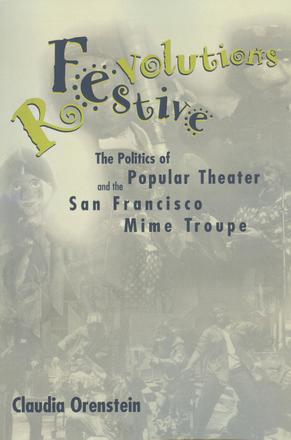
Festive Revolutions
The Politics of Popular Theater and the San Francisco Mime Troupe
The history and lineage of a Bay Area performance troupe that blends politics and festivity
Description
Are traditions of popular theatre still alive in politically-engaged theatre today? In San Francisco they are. The San Francisco Mime Troupe is a modern link in the long history of public performances that have a merry air but have a voice of political protest and social comment. Every summer since 1962 the Troupe has taken free outdoor performances to public parks in the Bay Area. In a style that is festive and a spirit that is revolutionary the Mime Troupe has relied on popular theatre forms to address timely political and social issues. Their productions maintain a contemporary political edge, while showing their origins to be the popular traditions of the commedia dell'arte, circus clowning, vaudeville, puppetry, and minstrel shows. With The Minstrel Show or Civil Rights in a Cracker Barrel (1965) they expressed support of the civil rights movement. With L'Amant Militaire (1967) they voiced support of Vietnam War protests.
To discover what makes these apparently frivolous theatrical traditions effective for contemporary political theatre, Festive Revolutions explores the historical origins of the popular forms the Mime Troupe draws on. In old Europe, where performance traditions began, political turmoil blended with festive celebration. The lineage of the Mime Troupe's Punch the Red can be traced back to the Italian puppet figure Pulcinella through its English and Russian counterparts Punch and Petrushka. In the Mime Troupe the use of stereotypes and reliance upon colorful festivity are diverse strategies for dodging censorship. Productions like Ripped Van Winkle continue today to rekindle the radicalism the Troupe inherited from the culture of the 1960s.
Festive Revolutions shows that such forms have inspired political theatre for centuries.